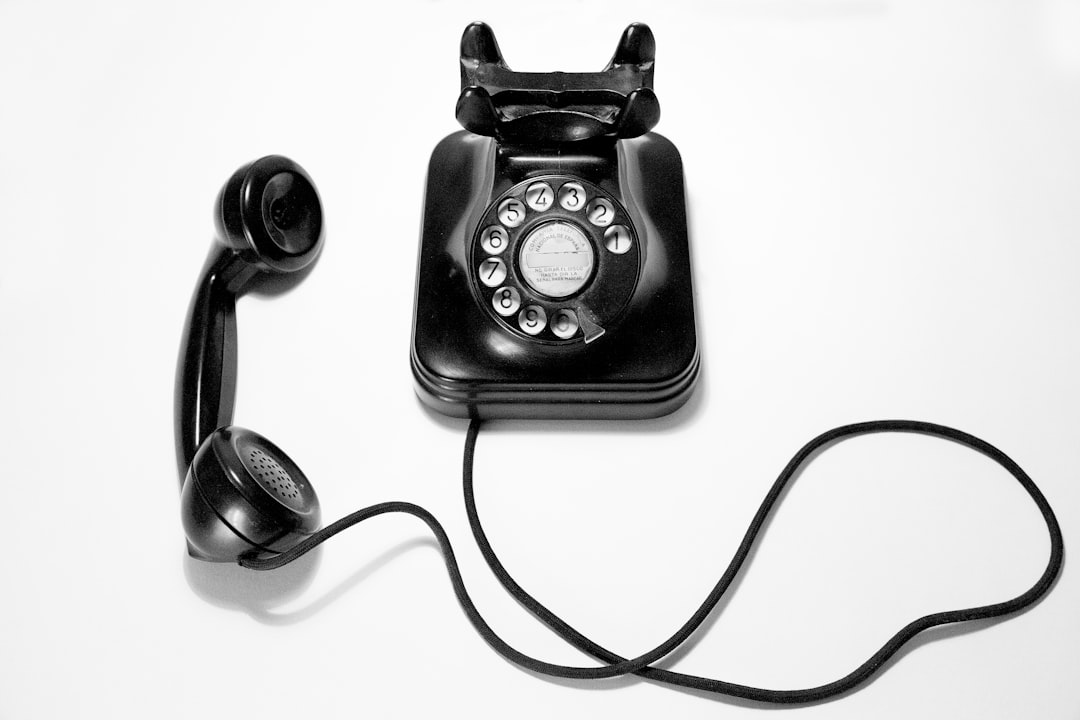In Indiana, where privacy and consent are major public concerns regarding autodialing for mass prerecorded messaging, an autodialer lawyer is crucial. These lawyers guide businesses on navigating regulations, ensuring compliance, and addressing consumer worries about data security and potential fraud. They promote ethical practices, advocate for best industry standards, and help build consumer trust through transparent communication and easy opt-out options. Businesses using autodialers in Indiana must obtain prior consent, maintain records, train staff, and disclose their use of these systems to avoid legal issues.
In the age of digital communication, autodialers have become a double-edged sword. While they offer efficient marketing solutions, public concerns about privacy invasion and unwanted calls persist. This article explores these anxieties, particularly within Indiana’s legal framework. We delve into common objections to autodialing practices, their impact on consumer rights, and practical strategies to address these issues. Additionally, it provides best practices for ethical autodialer usage, offering insights for both businesses and the esteemed audience of autodialer lawyers in Indiana.
Understanding Autodialing and Its Legal Framework in Indiana

In Indiana, autodialing refers to the use of automated phone systems to deliver prerecorded messages to multiple recipients simultaneously. This practice has sparked public concern regarding privacy and consent, prompting discussions on its legal implications. The state’s laws governing autodialers are designed to protect consumers from unwanted marketing calls and ensure fair business practices.
Indiana law requires businesses using autodialers to obtain explicit consent from individuals before making any prerecorded calls. This means that companies must have a clear and affirmative agreement from the caller to receive such messages. An autodialer lawyer in Indiana can provide guidance on navigating these regulations, ensuring compliance, and addressing public worries about this technology’s application in marketing strategies.
Common Public Concerns About Autodialing Practices

Many public concerns revolve around the intrusiveness and perceived lack of consent associated with autodialing practices. Often, consumers feel that automated phone calls, especially those using pre-recorded messages, are an unwanted disruption to their daily lives. This is particularly true when such calls are made in bulk, leading to a sense of annoyance and invasion of privacy.
Another significant worry is the potential for fraudulent activities. With the ability to make thousands of calls quickly, autodialers can facilitate scams, misleading consumers with false promises or urgent requests. Additionally, there are fears about data security, as personal information shared during these interactions might not be adequately protected. Thus, an autodialer lawyer Indiana could play a vital role in addressing these concerns and ensuring responsible marketing practices.
The Impact of Autodialers on Consumer Privacy and Rights

In today’s digital era, technology has brought about numerous advancements, but it has also introduced new challenges for consumer privacy and rights, particularly with the rise of autodialers. An autodialer lawyer Indiana might emphasize that automated dialing systems, while efficient in marketing efforts, can infringe on personal space and privacy. These technologies use automated calls to reach a large number of consumers, often without their explicit consent, which raises significant concerns among users who value their peace of mind and the security of their personal information.
The impact extends beyond mere irritation from unwanted calls. Indiana autodialer lawyers argue that such practices can lead to identity theft, fraud, and other malicious activities as sensitive data is collected and shared without proper safeguards. Consumers may feel compelled to share personal details to opt-out of these calls, potentially exposing them to risks. Protecting consumer privacy and rights in the context of autodialers has become a crucial aspect of digital law, requiring careful navigation between business needs and individual freedoms.
Strategies for Addressing and Mitigating Public Misgivings

Public concerns about autodialing, driven by experiences with unwanted calls, have prompted a need for strategies to mitigate misgivings and ensure ethical practices. One effective approach is open communication. Companies utilizing autodialers should be transparent about their use, explaining the benefits—such as improved efficiency in reaching customers—while acknowledging potential drawbacks. This honesty can foster trust and alleviate fears of being spammed or harassed.
Engaging with stakeholders, including consumers and regulatory bodies, is another powerful strategy. An autodialer lawyer in Indiana, for instance, can advocate for best practices, ensuring compliance with local laws and regulations. By collaborating with legal experts, companies can develop fair use policies, implement opt-out mechanisms, and regularly audit their dialing practices to address public concerns proactively.
Best Practices for Ethical and Compliant Autodialing Operations in Indiana

In Indiana, as with many states,autodialing practices are subject to specific regulations aimed at protecting consumers from unwanted phone calls. To ensure ethical and compliant autodialer operations, businesses should adhere to best practices such as obtaining prior express consent from recipients before making automated calls, providing a clear and easy opt-out mechanism during each call, and maintaining comprehensive records of consumer preferences. It’s crucial for companies using an autodialer lawyer in Indiana to stay informed about these regulations and regularly update their procedures.
Additionally, transparency is key. Companies should be upfront about the use of automated dialing systems, disclosing this information in a clear and concise manner during initial contact. Regular training for staff involved in autodialing operations can help ensure adherence to these practices, fostering trust among consumers and promoting compliance with Indiana’s regulations on automated phone calls.






